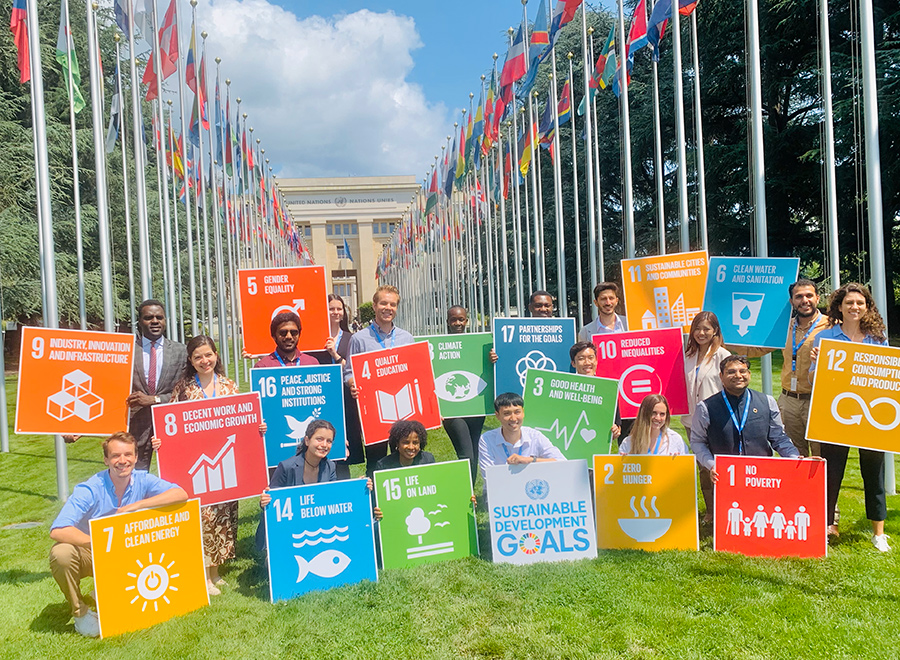In recent decades, the discourse surrounding climate change has garnered unprecedented attention across the globe, prompting urgent discussions about its implications for humanity’s future. The Bahá’í teachings, rooted in principles of unity, collaboration, and moral responsibility, offer a profound lens through which to analyze the collective human stance on environmental issues. It is within this context of unanimity that the Bahá’í perspective emerges, advocating for a comprehensive approach to the global climate crisis.
Recognizing a common observation, one might note the fragmentation prevalent in global efforts toward environmental protection. Nations, organizations, and individuals often operate in silos when addressing climate change, leading to disjointed responses and a lack of synergistic action. This fragmentation can be attributed to varying interests, economic disparities, and differing values attributed to ecological stewardship. However, the Bahá’í teachings remind us that such disunity can ultimately exacerbate societal challenges, including environmental degradation.
Central to the Bahá’í philosophy is the concept of human oneness, which posits that all people, regardless of race, nationality, or creed, constitute a single family. This idea can serve as a catalyst for galvanizing a unified front against climate change, as it emphasizes the interconnectedness of humanity with the natural world. When individuals recognize their responsibility to one another and to future generations, they are more likely to engage earnestly in dialogue about environmental stewardship.
The call for unanimity is not merely a rhetorical strategy; it is an essential aspect of Bahá’í teachings that acknowledges the intrinsic relationship between humanity and the environment. In this context, the divine injunction to “consult” serves as a guiding principle. Consultation fosters an atmosphere where diverse perspectives can be shared, valued, and synthesized to cultivate a richer understanding of the climate crisis. This process not only respects individual contributions but also enhances collective decision-making, leading to more effective and sustainable solutions.
Furthermore, the Bahá’í emphasis on education plays a pivotal role in addressing climate change. Awareness and understanding are foundational for mobilizing action. The teachings advocate for a systematic approach to education that encompasses the sciences, humanities, and ethics, thereby preparing individuals to navigate the complexities of ecological issues. An educated populace equipped with both knowledge and moral discernment is better positioned to discern the implications of their actions on the environment and to inspire others to do the same.
The Bahá’í writings also illuminate the ethical dimensions of environmental responsibility. The interconnected challenges of climate change demand introspection about humanity’s place within the natural world. A rich tapestry of Bahá’í scripture underscores the importance of humility in the face of natural forces, advocating for a respectful coexistence with all living beings. In this light, the pursuit of economic progress must never supersede environmental health; rather, it should be harmonized with the imperative of ecological sustainability.
Moreover, the notion of justice is paramount in Bahá’í teachings and serves as an essential criterion for climate discussions. As climate change disproportionately affects marginalized communities, promoting justice entails addressing the socio-economic disparities that contribute to environmental vulnerability. This aspect of Bahá’í thought compels adherents to advocate for policies that equitably distribute resources and opportunities, ensuring that every individual has the capacity to contribute to and benefit from collective climate action.
In practical terms, Bahá’ís are encouraged to engage actively in local and global environmental initiatives. This could include participation in community gardens, advocacy for sustainable practices, or collaboration with organizations focused on ecological restoration. The commitment to action is coupled with a recognition that true change requires persistence and resilience. Addressing climate change is not merely an act of charity, but an inherent duty that stems from an understanding of humanity’s interconnected fate.
Climate change also presents opportunities for interfaith dialogue, a principle integral to the Bahá’í faith. Various religious traditions emphasize stewardship of the earth; hence, fostering discourse between them can lead to unified strategies in combating climate challenges. Interfaith collaborations can emphasize collective responsibility and shared aspirations for creating a sustainable future. By pooling resources and insights, religious communities can amplify their influence in advocating for policy changes at local, national, and global levels.
However, it is essential to acknowledge that achieving unanimity in addressing climate change requires a concerted effort to bridge differences and build trust among all stakeholders. This entails active listening and the sincere intention to understand divergent viewpoints. While it may be tempting to prioritize one’s own agenda, the Bahá’í teachings implore that genuine progress can only occur when the collective good is placed at the forefront of discussions and actions.
In conclusion, the urgency of climate change invites profound introspection and collaborative action that resonate with Bahá’í teachings. The call for unanimity serves as a reminder that collective action is not merely desirable; it is imperative. By ingraining principles of unity, consultation, education, justice, and ethical responsibility into our dialogue on climate change, humanity can forge a path toward a sustainable future. In essence, transcending our differences and working collaboratively reinforces the idea that safeguarding our planet is a shared responsibility, one that can only be fulfilled through the concerted efforts of all.
